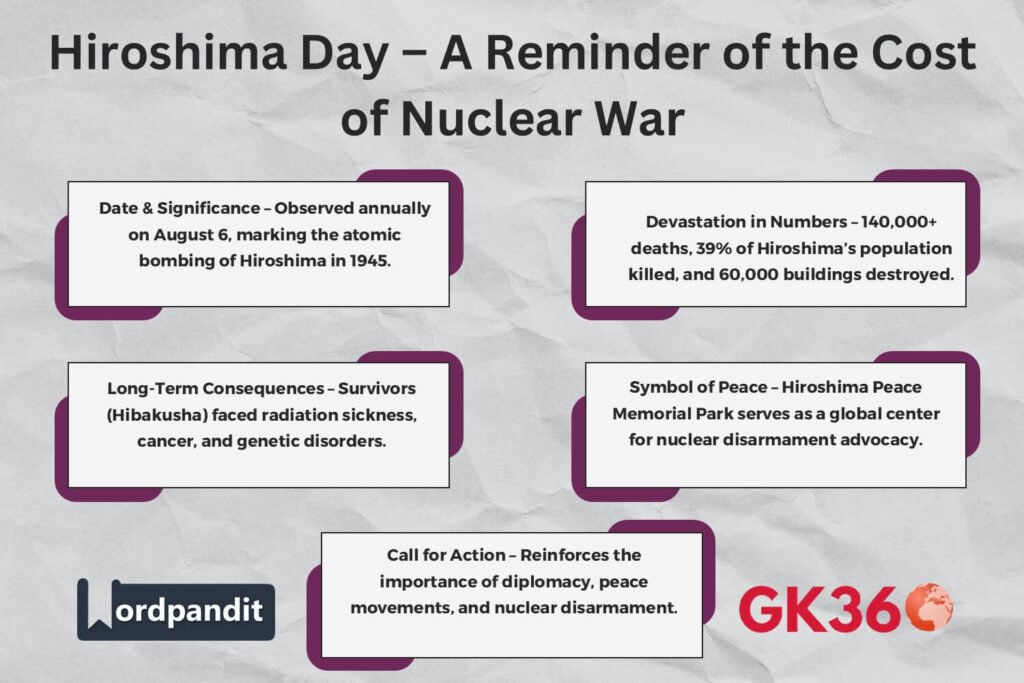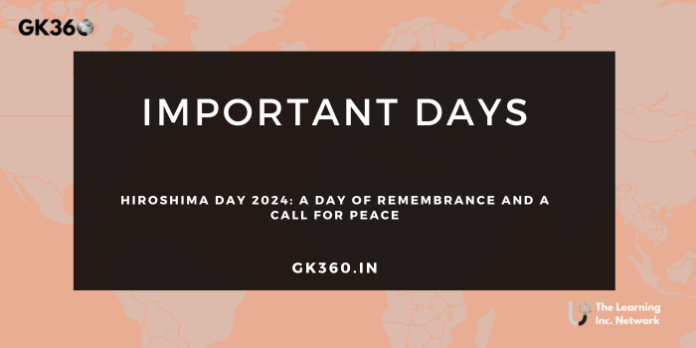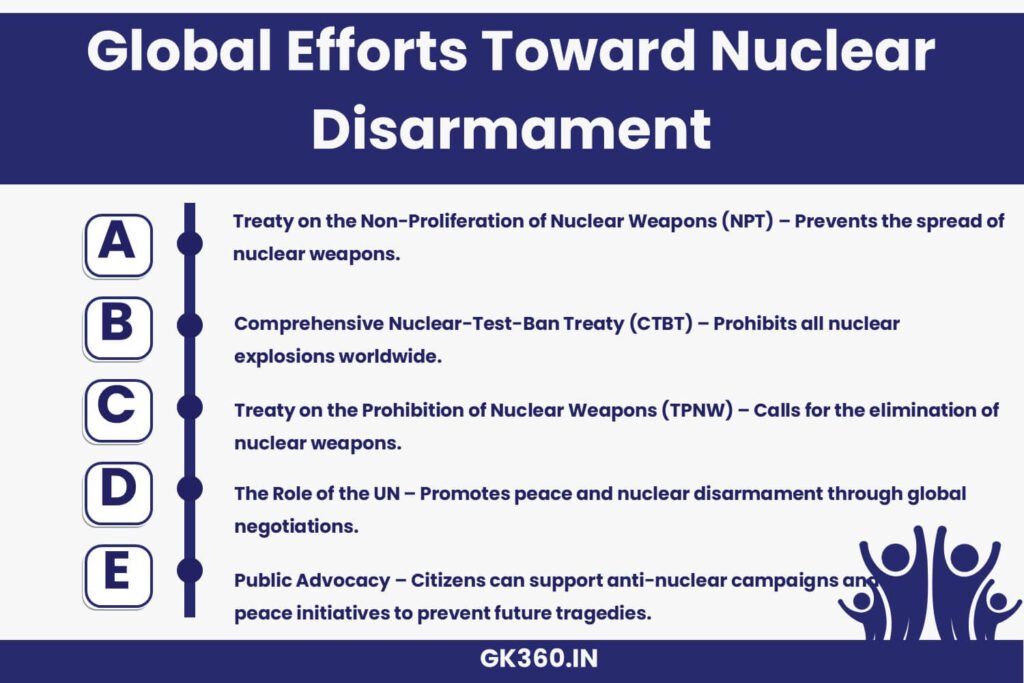Hiroshima Day 2024: History, Significance & The Call for Nuclear Disarmament
Introduction
Every year on August 6th, the world observes Hiroshima Day, a solemn occasion that commemorates the atomic bombing of Hiroshima, Japan, in 1945. This day serves as a poignant reminder of the devastating consequences of nuclear warfare and reinforces the global commitment to peace, disarmament, and the prevention of such tragedies in the future.

Table of Contents
- What is Hiroshima Day?
- Historical Background: The Bombing of Hiroshima
- Long-Term Consequences of the Atomic Bomb
- The Role of Hiroshima Day in Today’s World
- Global Nuclear Disarmament Efforts
- FAQs About Hiroshima Day
- Conclusion: Honoring the Past, Ensuring a Peaceful Future
What is Hiroshima Day?
Hiroshima Day is a global observance dedicated to remembering the nuclear attack on Hiroshima and promoting a world free of nuclear weapons. The day is marked by peace ceremonies, educational programs, and awareness campaigns that emphasize the dangers of nuclear warfare and the importance of diplomacy in conflict resolution.
Historical Background: The Bombing of Hiroshima
Why was Hiroshima Targeted?
On August 6, 1945, during the final stages of World War II, the United States dropped the first atomic bomb, called “Little Boy,” on the city of Hiroshima. The bomb was chosen for its strategic military importance, as Hiroshima was a major industrial and military hub.
The Immediate Aftermath
- The explosion instantly killed 90,000 to 140,000 people, with thousands more injured.
- Nearly 39% of Hiroshima’s civilian population perished.
- 60,000 buildings were destroyed, reducing the city to ruins.
- A mushroom cloud formed over the city, symbolizing one of the most destructive events in human history.
Long-Term Consequences of the Atomic Bomb
Impact on Survivors (Hibakusha)
The survivors of the Hiroshima bombing, known as Hibakusha, faced immense hardships due to exposure to radiation. Many suffered from severe burns, chronic illnesses, cancers, and genetic mutations that affected future generations.
Environmental and Health Effects
- The radiation fallout contaminated soil, air, and water, making Hiroshima uninhabitable for years.
- Increased cancer rates and birth defects were reported among survivors and their descendants.
- The incident raised global concerns about the long-term effects of nuclear weapons on both human health and the environment.
The Role of Hiroshima Day in Today’s World
Peace Movements and Commemorations
Hiroshima Day is a time for global reflection. The city of Hiroshima hosts memorial services, lantern floating ceremonies, and peace vigils to honor the victims and advocate for nuclear disarmament.
Hiroshima’s Message to the World
Hiroshima has transformed from a city of tragedy to a symbol of resilience and peace. The Hiroshima Peace Memorial Park and Museum serve as a global hub for nuclear awareness, urging nations to adopt policies that prevent the use of nuclear weapons.
Global Nuclear Disarmament Efforts
Treaties and Agreements
Efforts toward nuclear disarmament have led to several significant treaties:
- Treaty on the Non-Proliferation of Nuclear Weapons (NPT) – Aims to prevent the spread of nuclear weapons.
- Comprehensive Nuclear-Test-Ban Treaty (CTBT) – Seeks to end nuclear testing worldwide.
- Treaty on the Prohibition of Nuclear Weapons (TPNW) – Bans nuclear weapons and promotes disarmament.
The Role of the United Nations
The United Nations (UN) actively promotes nuclear disarmament through diplomatic negotiations, arms control agreements, and peace-building initiatives.
FAQs About Hiroshima Day
- Why is Hiroshima Day significant? Hiroshima Day serves as a reminder of the devastating impact of nuclear warfare and reinforces the need for global peace and nuclear disarmament.
- How is Hiroshima Day commemorated? Events include memorial services, peace marches, anti-nuclear campaigns, and educational programs to raise awareness.
- What was the impact of the Hiroshima bombing on Japan’s surrender? The Hiroshima and Nagasaki bombings directly led to Japan’s surrender on August 15, 1945, marking the end of World War II.
- What is the Hiroshima Peace Memorial Park? It is a UNESCO World Heritage Site dedicated to honoring the victims of the atomic bomb and promoting world peace.
- How can individuals contribute to nuclear disarmament? People can support disarmament by advocating for peace policies, participating in awareness campaigns, and supporting organizations working toward a nuclear-free world.
Conclusion: Honoring the Past, Ensuring a Peaceful Future
Hiroshima Day 2024 is a time for profound reflection, mourning, and action. As the world remembers the tragic events of August 6, 1945, it is also an opportunity to reaffirm our commitment to a world without nuclear weapons. By advocating for nuclear disarmament and global peace, we honor the memory of those who perished and work toward a safer future for generations to come.
Key Takeaways
| Aspect | Details |
|---|---|
| Event | Hiroshima Day (August 6) |
| Historical Significance | Commemorates the 1945 atomic bombing of Hiroshima |
| Immediate Impact | 140,000+ deaths, radiation exposure, and widespread destruction |
| Long-Term Effects | Health complications for Hibakusha (survivors), environmental damage, and genetic disorders |
| Symbolism | Hiroshima represents resilience, peace, and the need for nuclear disarmament |
| Key Disarmament Treaties | NPT, CTBT, and TPNW aim to prevent nuclear proliferation |
| Role of the UN | Advocates for global nuclear disarmament through treaties and diplomacy |
Related Terms:
- Hiroshima Day 2024
- August 6 Atomic Bombing
- History of Hiroshima Bombing
- Hiroshima and Nuclear Disarmament
- Impact of Nuclear Weapons
- Hibakusha and Radiation Effects
- Hiroshima Peace Memorial
- Global Peace Movements
- UN and Nuclear Disarmament
- World Without Nuclear Weapons






